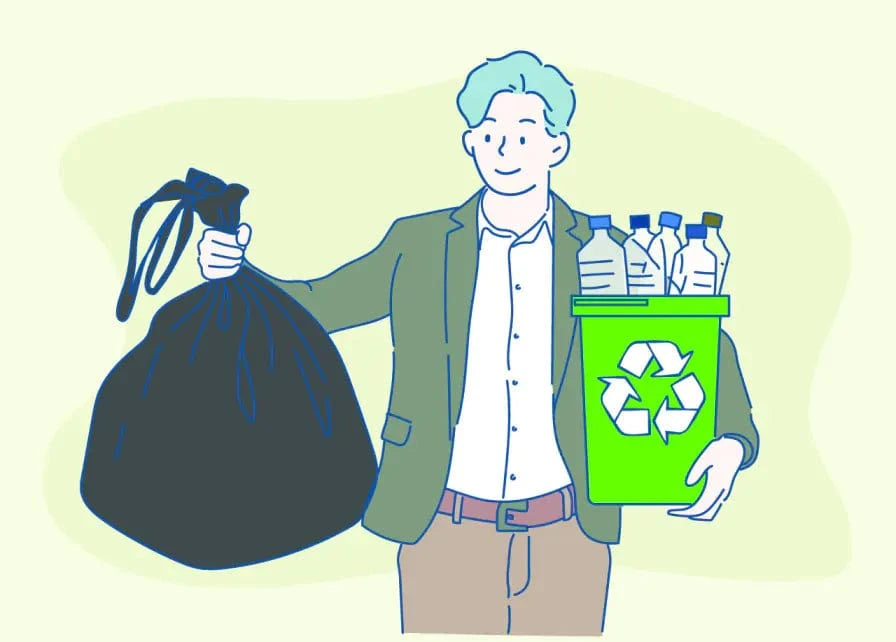Your basket is currently empty.
Shop NowDear Recycling Bins: The Importance of Staying Consistent

Dear Recycling Bins: The Importance of Staying Consistent
Dear Recycling Bins,
I’m usually pretty good at recycling, but since the beginning of the lockdown, I feel like I’ve started to get lazy with it. A visit to the supermarket is now a bit of a hurried ordeal so I don’t have the time to think so much about my purchases (usually I browse for packaging made from recycled material or opt for as little packaging as possible.)
When it comes to putting things in my recycling bin, I feel like I haven’t got the motivation ,inclination, or time to wash and sort everything properly as I’m currently working from home and trying to home school the kids.
I do feel guilty as I know that refuse teams are working really hard to keep on top of things and I don’t want to make their job even more difficult.
Is it really bad if I don’t stay on top of sorting my recycling?

It’s a very difficult time for everyone and the waste and recycling industry is definitely feeling it as well. You’re right that refuse teams are working flat out to maintain waste and recycling collections, and on top of that, recycling centres have been closed which has led to rubbish and bulky waste piling up or even being dumped in some areas.
This is why despite what’s going on, it’s even more important to recycle now than ever. We can’t let our hard work go to waste. We don’t want to come out of this pandemic and have to face the cost and effort of clearing up tonnes of extra rubbish. And we definitely don’t want to hurt our planet any more.
If you don’t sort your recycling, it can become contaminated which can make recycling much more expensive, difficult, or even impossible. An entire load of recycling can be rejected because of contamination which cancels out any effort you or anyone else has made to recycle.
Contamination can also:
- Damage or get trapped in the machinery at the recycling centre. Plastic bags are notorious for getting caught in machines.
- Put recycling centre workers at risk. The people who have to manually sort the contamination can be exposed to potentially hazardous waste.
- Reduce the value of materials like paper, cardboard, plastic, and metal. Contamination lowers the quality and the going rate at which they can be sold.
- Increase costs to councils because rejected recyclables will end up in landfill. This is money that could be far better spent.
So to avoid turning your perfectly good recyclables into trash, avoid putting these in with your recycling at all costs:
- Plastic bags
- Clingfilm
- Bubble wrap
- Pizza/takeaway boxes
- Coloured paper
- Non-recyclable plastics (check the label and your local council’s website for more information as the rules can vary.) As a general rule, if the label says 1-PET or 2- HDPE, the item will be recyclable as these are among the most commonly recycled types of plastics.
- Hazardous waste- things like paint, engine oil, or any kind of pesticide. Check on your council’s website or on Recycle Now to see what the rules are for items like this. Sometimes they are accepted at recycling centres (though check which centres near you are open as many are still closed/only open for limited hours due to coronavirus, and social distancing rules are in place.)
- Nappies and sanitary products- These are a biohazard and must be put in with your general waste.

How to avoid contaminating your recycling
- Check what the rules are in your area by looking at your council’s website. They might have extra coronavirus information and guidance too. The better informed you are, the more able you’ll feel to make the right choices.
- Get the family involved. It shouldn’t just be you taking responsibility for recycling, make sure everyone understands what they have to do. In fact, why not make a recycling less part of the kids’ home schooling?
- We know time is tight and things are tough at the moment, but try to remember to give your recyclables a rinse. Whoever’s turn it is to do the dishes can do this once they’ve finished the pots and pans.
Do these few things and you’ll make life easier for hard-working refuse teams and recycling workers, and you’ll still be doing your bit for the planet that sustains us. Keep up the good work!
